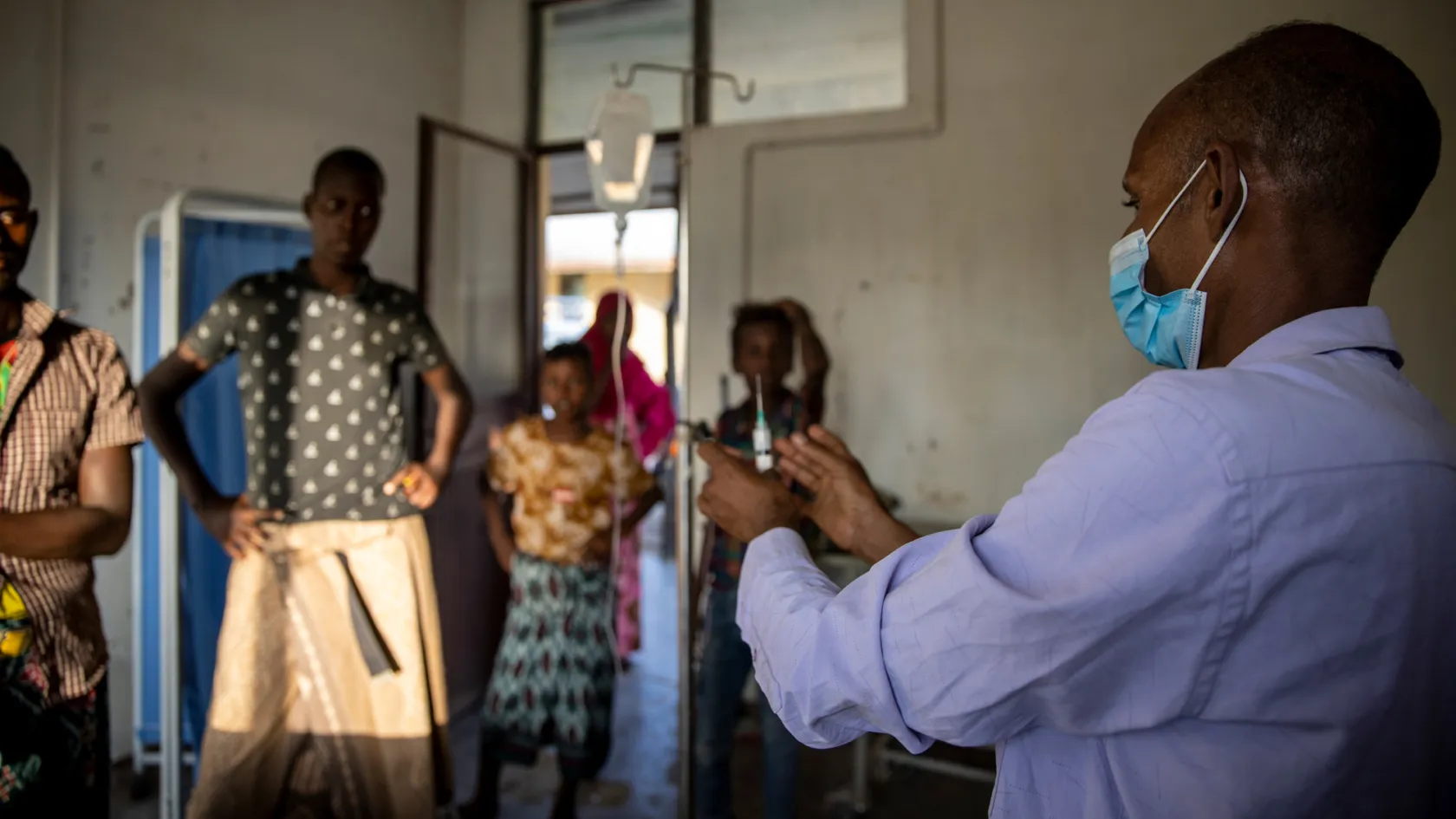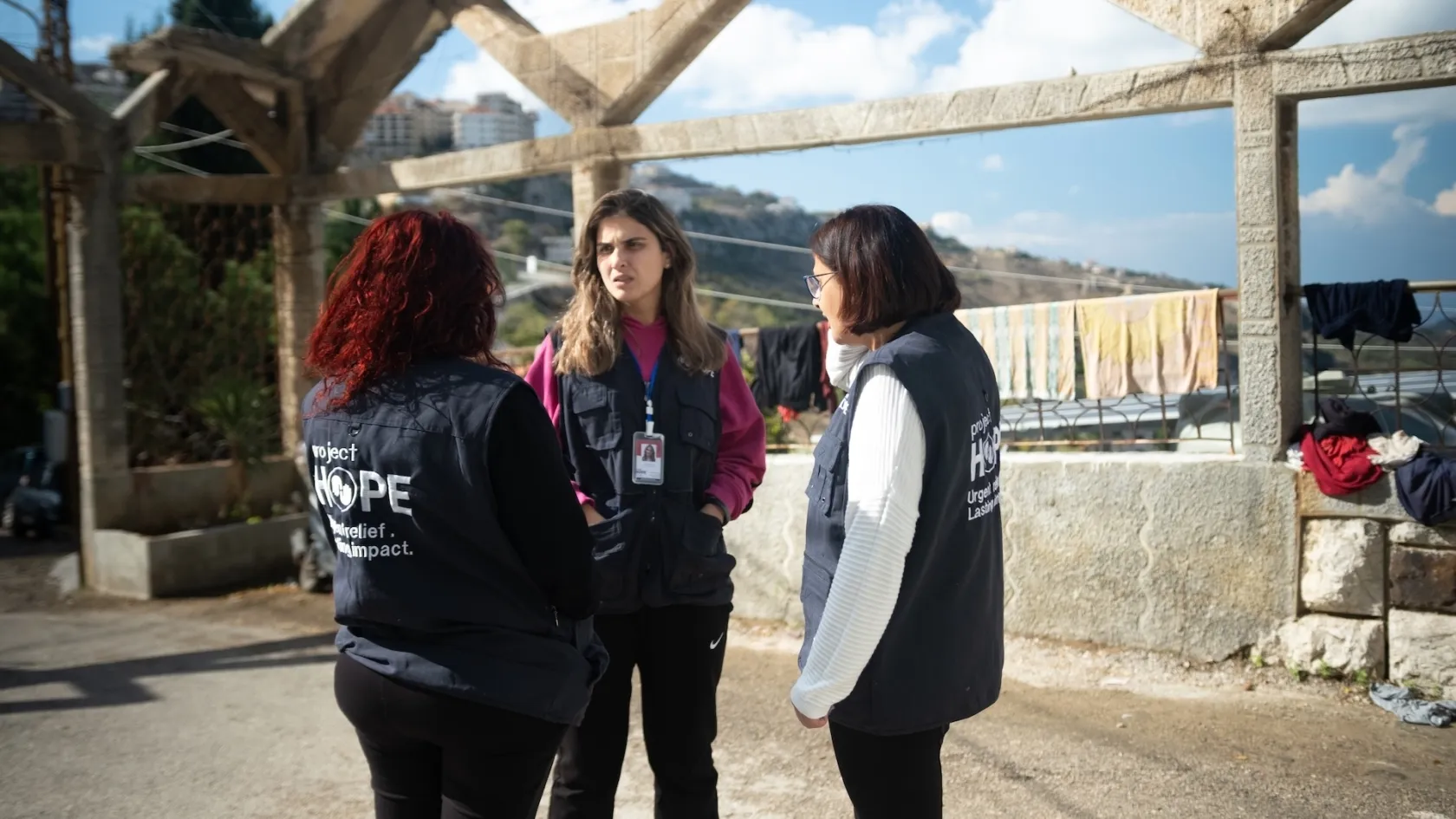On-The-Record Updates: The COVID-19 Situation In Lebanon
More than a week after the start of a strict lockdown in Lebanon, the number of reported COVID-19 daily cases remain very high with a 7-day average of more than 4,600 daily new cases (as of January 20, 2021). As a result, the government announced on Thursday, January 21 that the 24-hour lockdown will be extended for two weeks, until Monday, February 8.

Bethesda, MD (January 21, 2021) — More than a week after the start of a strict lockdown in Lebanon, the number of reported COVID-19 daily cases remain very high with a 7-day average of more than 4,600 daily new cases (as of January 20, 2021). As a result, the government announced today, on Thursday, January 21, that the 24-hour lockdown will be extended for two weeks, until Monday, February 8. The tight restrictions on movement across the country were initially set to expire on Monday, January 25. Overall, the country has reported over 260,000 cases—which is more than 5 percent of the Lebanese population – and over 2,000 deaths since March 2020. The COVID-19 pandemic is compounded by a financial crisis and an explosion in August 2020 that had already brought the health system on the brink of collapse. Health care workers have been on the frontlines and high rates of infection have been reported among nurses and doctors.
Quotes from Rabih Torbay, CEO and President of Project HOPE
“Lebanese are going from one catastrophe to another one. The lockdown will likely aggravate the economic and financial situation of the country, yet Lebanon faces now a life and death situation. While the economy can be rebuilt, lost lives cannot.”
“The lockdown is a temporary solution to bring down the number of COVID-19 infections. Yet, we must not forget that Lebanon has been suffering from a multi-faceted crisis that has spared no one. Lebanese people lack cash, food, and medicines. For over a year, we’ve been witnessing a humanitarian disaster in slow motion.”
Latest Updates
- In the first 20 days of 2021 —77, 704 new COVID-19 cases were recorded. This is an average of 3,885 new cases per day and 162 new cases recorded every hour.
- Intensive Care Units (ICU) are at 90.5% across the country and at 100% in Beirut, according to the World Health Organization.
- With hospitals being at full capacity, patients are being treated in hospital parking lots, with doctors forced to supply oxygen, do blood tests and scans outside of hospitals. In order to cope with the number of COVID-19 infections, old and inoperative hospitals will reopen to receive COVID-19 patients starting next week.
- Shortages of oxygen and ventilators in hospitals have been reported. Doctors and nurses face difficult choices, having to decide who should be put on ventilators and/or receive oxygen. Some people have begun buying expensively-priced oxygen generators to use at home, whenever available. According to local sources, acutely ill elderly patients have also been sent home so ventilators can be saved for younger patients.
- The pandemic dealt a final blow to doctors and nurses who have been suffering from the economic meltdown. As a result, hundreds of doctors and nurses have already left the country, seeking opportunities abroad. According to the Lebanese Order of Physicians, at least 500 of 15,000 registered doctors left the country in 2020, taking jobs in Europe, the United States and Persian Gulf nations.
- According to recent numbers shared by Lebanon’s doctors syndicate, at least 11 doctors have died in the pandemic, 25 are in critical care and 300 are in isolation across Lebanon.
- Lebanon’s government is still contemplating modifications to the current subsidization mechanism. Changes could be announced soon and are likely to affect the prices of medicines, food, and other essential goods. The Central Bank expects to be able to continue the current mechanism for no longer than March 2021.
Vaccination Updates
- On January 16, 2021, Lebanon signed its final deal for 2.1 million doses of the Pfizer-BioNtech vaccine. The cost will be covered by a World Bank loan. The vaccines are due to start arriving in batches in February.
- Lebanon also signed up for 2.73 million doses through COVAX. However, it is not clear when the shots will arrive.
Project HOPE in Lebanon
Following the Beirut port explosion, Project HOPE has partnered with the Rene Moawad Foundation (RMF) Lebanon to provide trauma care and psychosocial support. Till this day, it continues to provide immediate assistance through the procurement and distribution of medicines, medical supplies, disaster health kits and PPEs. So far, Project HOPE has supported more than 10 hospitals in Beirut, 12 Public Health Centers and several local INGOs, and has reached more than 70,000 people in need and affected by the blast as well as health workers.
About Project HOPE
Project HOPE is a global health and humanitarian relief organization that is committed to placing power in the hands of local health care workers to save lives across the globe.



